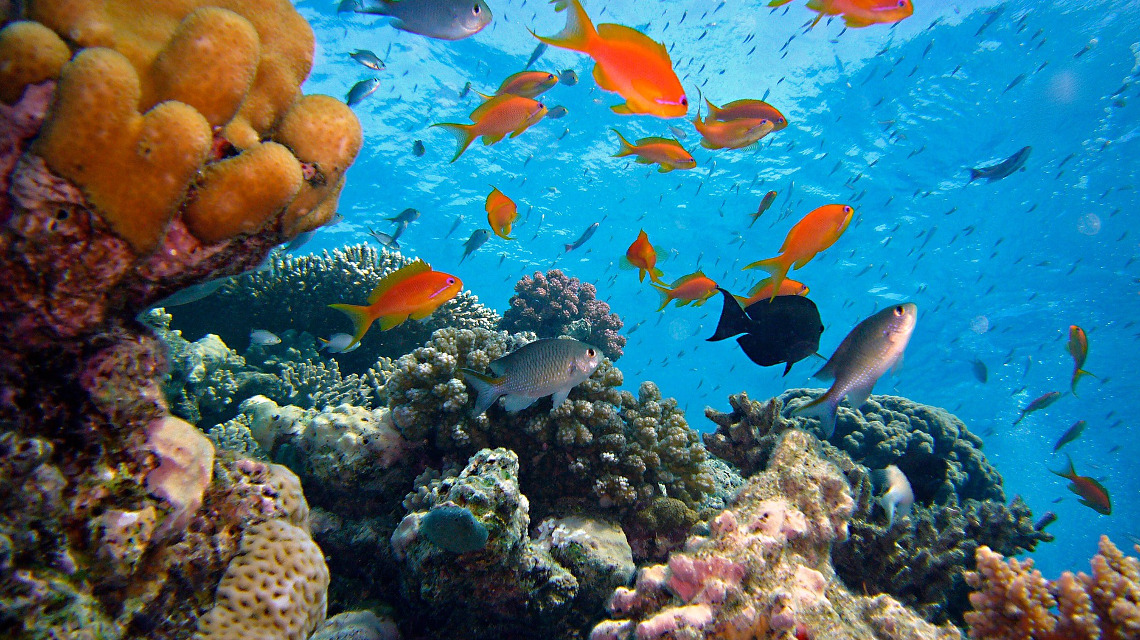Urgent call for action
In its latest report, the IPCC has called for a drastic reduction in CO2 emissions in order to limit the risks posed by global warming to humans and nature.

Carbon dioxide (CO2) is a natural component of air. However, industrial exhaust fumes, car traffic or electricity generation bring additional quantities of the greenhouse gas into the Earth's atmosphere, which drives global warming. Already today, the global temperature is more than 1 degree Celsius above the pre-industrial level, according to the latest special report on global warming presented by the Intergovernmental Panel on Climate Change (IPCC) on 6 October 2018 in Incheon, South Korea.
Radically reducing greenhouse gas emissions
The message of the IPCC is clear: weather extremes such as heat, drought, heavy rainfall and flooding will increase worldwide if global warming is not limited to 1.5 degrees Celsius. Sensitive ecosystems in particular, such as tropical coral reefs or the Arctic, would continue to be at risk. After evaluating numerous climate studies, IPCC scientists have come to the conclusion that even at 1.5 °C, the risks to humans and nature would be extensive. To prevent this, greenhouse gas emissions would have to be radically reduced worldwide. Otherwise the tipping point of 1.5 degrees would already be surpassed in 2040, according to the IPCC.
Quick and decisive action needed
"The longer the world waits with ambitious climate protection measures, the more crucial the importance of CO2 capture technologies becomes for the 1.5 degree target," says Sabine Fuss of the Mercator Research Institute on Global Commons and Climate Change (MCC) in Berlin, who was the lead author of the study. Fuss recommends a faster and more decisive reduction in emissions in order to reduce dependence on CO2 extraction technologies.
At the 2015 World Climate Conference in Paris, the member states agreed to keep global warming below 2 degrees until the end of the century. At the urging of individual member states, it was additionally stipulated that additional "efforts would be made to limit the rise in temperature to 1.5 degrees Celsius compared to pre-industrial levels". Island states, which are already threatened today by the rise in sea levels, had signed the Paris Climae Agreement only on the condition that the Intergovernmental Panel on Climate Change presents a special report on the consequences of global warming by 1.5 degrees Celsius.
Climate target requires radical change
According to the IPCC, CO2 emissions would have to be reduced by 45% compared to 2010 in order to achieve the climate target of 1.5 degrees Celsius. According to the IPCC, this will require radical change in all areas of life worldwide. The IPCC study states that limiting global warming to 1.5 degrees Celsius compared to 2 degrees Celsius would not only curb sea-level rise. It would also reduce the increase in ocean temperature and acidity as well as the decrease in oxygen content in the ocean. This would reduce the risks to marine biodiversity, fisheries and ecosystems as well as their functions and services for humans.
Strengthening research and science
The report of the Intergovernmental Panel on Climate Change also worries the Federal Government: "We need strong contributions from research and must exploit the potential of science even more to get a grip on climate change," says Federal Research Minister Anja Karliczek. "Good ideas from research and decisive action on the part of politicians, business and society can bring about the necessary changes."
Farewell to coal, oil and gas
Federal Minister for the Environment Svenja Schulze also views the IPCC report as confirming the urgency of climate protection action. "We must not lose any more time in climate protection. Every ton of CO2 saved, every tenth of a degree of global warming avoided counts." According to Schulze, a "farewell to coal, oil and gas" is the only chance to still achieve the ambitious climate target. "This restructuring brings with it many changes but also great opportunities to make our economy more sustainable and our society more livable," argues the Federal Minister.
um


